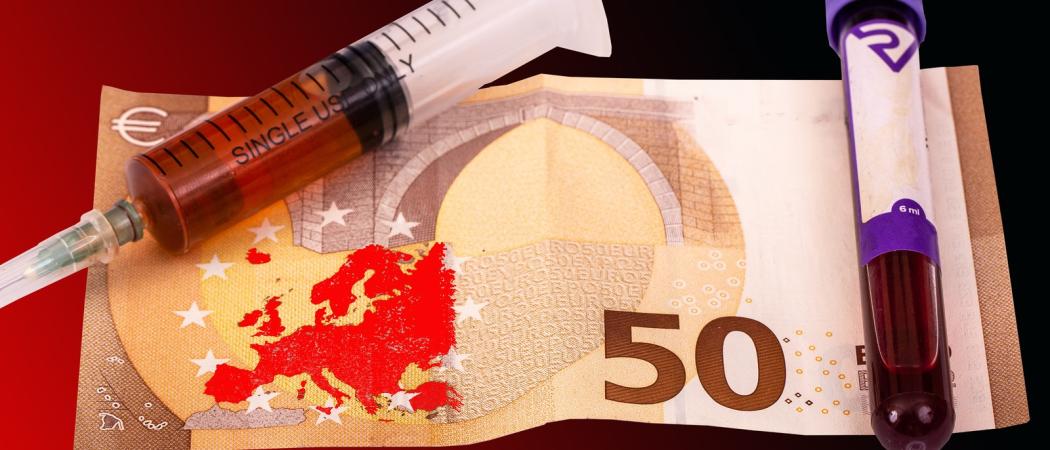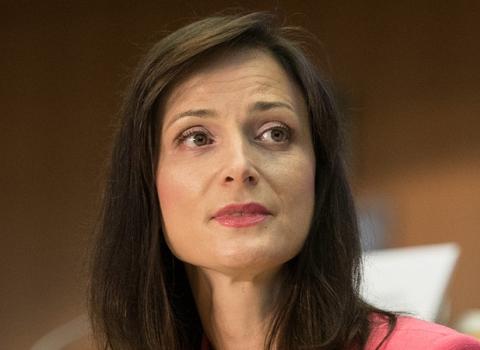Brussels will negotiate advance purchase agreements, giving manufacturers confidence to invest before they know if vaccines work, and ensuring equitable access for EU27 and low- and middle-income countries around the world

The European Commission is to negotiate COVID-19 vaccines contracts on behalf of all 27 member states using a €2.3 billion emergency fund for down payments, and has now issued a call to companies with production capacity in Europe which have COVID-19 vaccines that will be in clinical trials in 2020.
The commission is warning that countries rushing individually to secure supplies would raise the price for everyone and leave some countries without. The strategy is about “securing volumes at a good price and avoiding harmful competition between each other,” said Ursula von der Leyen, commission president.
The EU push is prompted by the fear that member states pursuing their own initiatives will see poorer countries squeezed out of vaccine purchases by the financial might of the world’s largest economies.
On Saturday, four EU countries struck a deal with pharma company AstraZeneca for the supply of at least 400 million doses of its vaccine, originally designed at Oxford University, at a cost of €2 per dose.
The ‘Inclusive Vaccines Alliance’ of Germany, France, Italy and the Netherlands has been criticised for its lack of solidarity, but announcing the deal last Saturday, Astrazeneca CEO Pascal Soriot said, “The four countries have done it on behalf of Europe.”
The Alliance will now dovetail into the EU strategy, after health ministers gave the commission a mandate to negotiate on their behalf last Friday.
The Inclusive Alliance will “combine forces” with the new Brussels effort, said Sebastian Gülde, spokesman for the German health ministry.
“Both initiatives are intimately connected and complementary,” said Eric Mamer, the commission’s chief spokesman.
The merger of the Inclusive Alliance with the EU initiative was inevitable, says Yannis Natsis, policy manager, universal access and affordable medicines at the European Public Health Alliance. “The commission needed to save face and show it’s relevant.”
He is more concerned about the lack of detail in the EU scheme. “Governments need to make sure this isn’t a multi-million blank cheque to industry. This is a delicate agreement, the like of which we haven’t had before,” said Natsis. “The lack of transparency is astonishing – and worrisome. I understand the need for speed but accountability is key when significant money is involved,” he said. The amounts going towards a vaccine are colossal, with an extra €750 million announced Thursday by Germany for research.
The negotiations will be overseen by a committee of representatives from member states.
While merging the Alliance with the EU effort may have been inevitable, the initiative did have the effect of “waking some people up in Europe”, an EU source said.
Member state governments are concerned the continent may lose out on early access to a vaccine against the virus, which has killed over 180,000 people in Europe.
It has been clear for a while that Europe will face stiff competition for vaccine supplies, with the Trump administration in the US making little secret of its intention to prioritise its citizens when a vaccine becomes available.
The US has moved faster than Europe to secure access to vaccines, including an unspecified investment in two vaccines being developed by Sanofi and a $1 billion investment in AstraZeneca’s vaccine. Both Soriot and Sanofi CEO Paul Hudson have said Europe needs an equivalent to the Biomedical Advanced Research and Development Authority (BARDA), which made it possible to work with a single agency to negotiate advanced purchase agreements for the whole of the US.
BARDA is running ‘Operation Warp Speed’, set up by president Donald Trump to incentivise manufacturers, with the aim of getting 300 million doses of COVID-19 vaccines to Americans by January.
Sharing risk
The EU will lose money if a particular vaccine fails in development, but if it is successful, all the money goes into its production. Payments won’t all be upfront but given in milestones as vaccines progress in development.
Advance payments will vary according to the cost of manufacture, but vaccines are expected to be supplied at cost. Each member state will have the right to buy a certain number of doses relative to the size of their populations, for a certain price, and will have full control of how vaccines are used.
One ace the EU has up its sleeve is the promise of “regulatory facilitation” by the European Medicines Agency, to speed vaccines through the approvals. The commission is also going to waive the requirement for an environmental assessment of vaccines that use genetically modified viruses to deliver the active ingredients.
The EU proposal will target manufacturers headquartered anywhere in the world that have production facilities in Europe; those with potential vaccines made solely in the US won’t be considered for the scheme.
The commission argues its hedging strategy of backing multiple vaccine projects is necessary, even if it loses money on vaccines that fail in development.
Soriot said on Saturday that it will be known if the AstraZeneca vaccine works by the end of August/beginning of September. If it is effective supplies will be available at that point. This week the company has announced a number of agreements with contract manufacturers in Europe to produce commercial supplies of the vaccine.
It is important to share the risk with governments, said Soriot. While the cost is not that high on a unit basis, supplying the whole world would be €14 billion. “There’s no way a company like ours can carry the cost,” he said.
AstraZeneca’s vaccine is the most advanced in development, and if effective would be the first to be supplied at scale. If other vaccines following behind are effective, wide scale production could begin in the next 12-18 months, scientists say.





 A unique international forum for public research organisations and companies to connect their external engagement with strategic interests around their R&D system.
A unique international forum for public research organisations and companies to connect their external engagement with strategic interests around their R&D system.